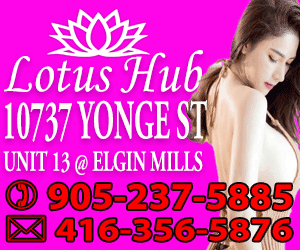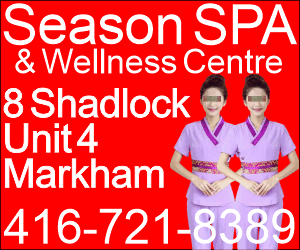The systems that perpetuate exclusion and inequity are still going strong. There are still many people who are ignorant of these systems and their pervasive nature. The spa and wellness industry, including the massage profession, is an offspring of these systems.
Editor’s note: Toshiana Baker founded the Network of Multicultural Spa and Wellness Professionals (NMSWP). A year ago, she wrote for MASSAGE Magazine’s first Diversity, Equity & Inclusion issue in an essay titled “We Must Create a Community of Belonging,” wherein she detailed challenges she has faced as a Black woman working in the spa and wellness field—and how those challenges fueled her motivation to create a community of belonging for all underrepresented and marginalized spa and wellness professionals.
Here, Baker shares her observations on what she believes each of us can do to commit to the long-term changes needed to bring more diversity, equity and inclusion into the massage and spa space.
When reflecting on the progress that has or has not occurred in the past year with regard to multiculturalism, I feel torn, honestly. Coming through the pandemic and the time that it provided for more stillness and isolation, I have observed many people emerging to make a new commitment to the principles they have deemed as most important, including being more inclusive of others.
On the part of many people, I do see a new, or renewed, commitment to issues of diversity, equity and inclusion as a means to create more community and develop group initiatives. Additionally, I have noticed that some people really have made kindness their cornerstone and as a result, it has shown up in them being more tolerant of those with differences. This kindness has positively strengthened the sense of belonging for many people, in many ways.
There are companies putting money behind new initiatives to truly demonstrate their commitment to diversity, equity and inclusion, and you can see this by some companies creating more positions that express a desire for a more diverse representation on their teams, especially in executive and leadership roles. In advertising, I have noticed more diverse faces than before.
My struggle, though, is in asking myself if this is how we measure progress. Yes, progress is being made; however, there is a significant way to go. The systems that have created and been supported by the pervasive, dominant culture that has driven the outcomes that have included exclusion and inequity for so long are still going strong. There are still many people who are ignorant of these systems and their pervasive nature.
The spa and wellness industry, including the massage profession, is an offspring of these systems.
Progress is happening, but perhaps in many more subtle ways than overt ones. I say this because there are still communities that are marginalized and underserved in the massage profession, especially because the profession of massage therapy is not perceived as a viable career option. There are schools that still struggle to keep their doors open and enrollment up to feed the industry a pipeline of diverse talent. Some schools have students who have had to abandon their academic pursuits during economic difficulties, such as the difficulties occurring now, because historically marginalized and underserved students are often responsible for contributing to the financial wellbeing of their household. There are still employers in spa and massage who are not competitive in their wages and still have inequities in pay and promotion opportunities, aka the wage gap. While there has been an increase in entrepreneurship among minority groups, there are still financial and resource disparities for many of these business owners.
There are still people who only think of race when we mention multiculturalism and diversity, equity and inclusion, and not all of the other identities that keep people “othered” in our mainstream society, such identities as age, gender, religion, sexual orientation and physical ability.
These are things that come to mind when I ruminate on the question of our progress as a whole. These are things that often can feel overwhelming when I think about the amount of change and progress that would be needed to right this ship.
What has been most effective for me personally and in the professional work that I have done in the past year is better understanding the principles and meanings of the language and terms used in the diversity, equity and inclusion landscape. I have had the honor of learning from many bright lights that have come forward and been allowed to teach as we all have been eager for understanding and knowledge on how to move us all forward with true humanity and compassion.
What I know to be true is that you have to sit with the truth of who you are and what your life experience has exposed you to.
You have to give yourself grace for the areas that you may have been complicit in perpetuating the problem through your previous ignorance and unconscious biases.
You have to understand that this concept of “have we succeeded?” is somewhat attributable to the pervasive dominant cultural value that over-emphasizes measurement of things and classifies things in a binary yes-or-no fashion in order to make them valid or invalid.
You have to become more familiar with the long-term commitment to change through growing pains, challenges and discomfort and not expect things to change quickly so you can go back to being comfortable and predictable.
You have to be willing to give people space to tell their own story, find and use their unique voice and own their own truth.
You have to set specific goals and KPIs on these initiatives just as we do anything else worth achieving, but respect that everyone’s goals and measurements could be slightly different based on the values they are setting as their summit.
What makes us more tolerant, and progressive is allowing things and people to be and exist as they are and engaging them in meaningful conversation to gain a new perspective. The consideration that they may have another point of view that doesn’t fit the previous norm is part of the process of improvement. Through this, one learns more empathy, acceptance and compassion, and this is what feeds the progress needed to continue to make the most impactful changes.
It is awesome to be on the path of making things better for the spa and wellness industries. It is a big undertaking, and therefore progress will not always be as apparent. However, the exercises of expanding your awareness, consciousness and learning more emotional intelligence have immediate rewards to the individual as well as the larger community.
When you think of the crucial work that we do as wellness practitioners, working in places of renewal and restoration, it is exciting and worthwhile to think that the incremental progress we are making really does have a great impact in helping to make our clients, customers and community feel more seen, heard and accepted—while empowering them to be themselves as they show up in their daily lives. While we have a way to go, I encourage each of us to press forward in persistence and patience.
About the Author
Toshiana Baker is an esthetician, spa educator and spa consultancy owner. She founded the Network of Multicultural Spa and Wellness Professionals, which supports multiethnic and multicultural health care professionals with education and other resources. To learn more, read “New Group Promotes Diversity in Spa & Wellness Careers” on massagemag.com.
Related Posts
Editor’s note: Toshiana Baker founded the Network of Multicultural Spa and Wellness Professionals (NMSWP). A year ago, she wrote for MASSAGE Magazine’s first Diversity, Equity & Inclusion issue in an essay titled “We Must Create a Community of Belonging,” wherein she detailed challenges she has faced as a Black woman working in the spa and wellness field—and how those challenges fueled her motivation to create a community of belonging for all underrepresented and marginalized spa and wellness professionals.
Here, Baker shares her observations on what she believes each of us can do to commit to the long-term changes needed to bring more diversity, equity and inclusion into the massage and spa space.
When reflecting on the progress that has or has not occurred in the past year with regard to multiculturalism, I feel torn, honestly. Coming through the pandemic and the time that it provided for more stillness and isolation, I have observed many people emerging to make a new commitment to the principles they have deemed as most important, including being more inclusive of others.
On the part of many people, I do see a new, or renewed, commitment to issues of diversity, equity and inclusion as a means to create more community and develop group initiatives. Additionally, I have noticed that some people really have made kindness their cornerstone and as a result, it has shown up in them being more tolerant of those with differences. This kindness has positively strengthened the sense of belonging for many people, in many ways.
There are companies putting money behind new initiatives to truly demonstrate their commitment to diversity, equity and inclusion, and you can see this by some companies creating more positions that express a desire for a more diverse representation on their teams, especially in executive and leadership roles. In advertising, I have noticed more diverse faces than before.
My struggle, though, is in asking myself if this is how we measure progress. Yes, progress is being made; however, there is a significant way to go. The systems that have created and been supported by the pervasive, dominant culture that has driven the outcomes that have included exclusion and inequity for so long are still going strong. There are still many people who are ignorant of these systems and their pervasive nature.
The spa and wellness industry, including the massage profession, is an offspring of these systems.
Progress is happening, but perhaps in many more subtle ways than overt ones. I say this because there are still communities that are marginalized and underserved in the massage profession, especially because the profession of massage therapy is not perceived as a viable career option. There are schools that still struggle to keep their doors open and enrollment up to feed the industry a pipeline of diverse talent. Some schools have students who have had to abandon their academic pursuits during economic difficulties, such as the difficulties occurring now, because historically marginalized and underserved students are often responsible for contributing to the financial wellbeing of their household. There are still employers in spa and massage who are not competitive in their wages and still have inequities in pay and promotion opportunities, aka the wage gap. While there has been an increase in entrepreneurship among minority groups, there are still financial and resource disparities for many of these business owners.
There are still people who only think of race when we mention multiculturalism and diversity, equity and inclusion, and not all of the other identities that keep people “othered” in our mainstream society, such identities as age, gender, religion, sexual orientation and physical ability.
These are things that come to mind when I ruminate on the question of our progress as a whole. These are things that often can feel overwhelming when I think about the amount of change and progress that would be needed to right this ship.
What has been most effective for me personally and in the professional work that I have done in the past year is better understanding the principles and meanings of the language and terms used in the diversity, equity and inclusion landscape. I have had the honor of learning from many bright lights that have come forward and been allowed to teach as we all have been eager for understanding and knowledge on how to move us all forward with true humanity and compassion.
What I know to be true is that you have to sit with the truth of who you are and what your life experience has exposed you to.
You have to give yourself grace for the areas that you may have been complicit in perpetuating the problem through your previous ignorance and unconscious biases.
You have to understand that this concept of “have we succeeded?” is somewhat attributable to the pervasive dominant cultural value that over-emphasizes measurement of things and classifies things in a binary yes-or-no fashion in order to make them valid or invalid.
You have to become more familiar with the long-term commitment to change through growing pains, challenges and discomfort and not expect things to change quickly so you can go back to being comfortable and predictable.
You have to be willing to give people space to tell their own story, find and use their unique voice and own their own truth.
You have to set specific goals and KPIs on these initiatives just as we do anything else worth achieving, but respect that everyone’s goals and measurements could be slightly different based on the values they are setting as their summit.
What makes us more tolerant, and progressive is allowing things and people to be and exist as they are and engaging them in meaningful conversation to gain a new perspective. The consideration that they may have another point of view that doesn’t fit the previous norm is part of the process of improvement. Through this, one learns more empathy, acceptance and compassion, and this is what feeds the progress needed to continue to make the most impactful changes.
It is awesome to be on the path of making things better for the spa and wellness industries. It is a big undertaking, and therefore progress will not always be as apparent. However, the exercises of expanding your awareness, consciousness and learning more emotional intelligence have immediate rewards to the individual as well as the larger community.
When you think of the crucial work that we do as wellness practitioners, working in places of renewal and restoration, it is exciting and worthwhile to think that the incremental progress we are making really does have a great impact in helping to make our clients, customers and community feel more seen, heard and accepted—while empowering them to be themselves as they show up in their daily lives. While we have a way to go, I encourage each of us to press forward in persistence and patience.
About the Author
Toshiana Baker is an esthetician, spa educator and spa consultancy owner. She founded the Network of Multicultural Spa and Wellness Professionals, which supports multiethnic and multicultural health care professionals with education and other resources. To learn more, read “New Group Promotes Diversity in Spa & Wellness Careers” on massagemag.com.
Related Posts



































































































